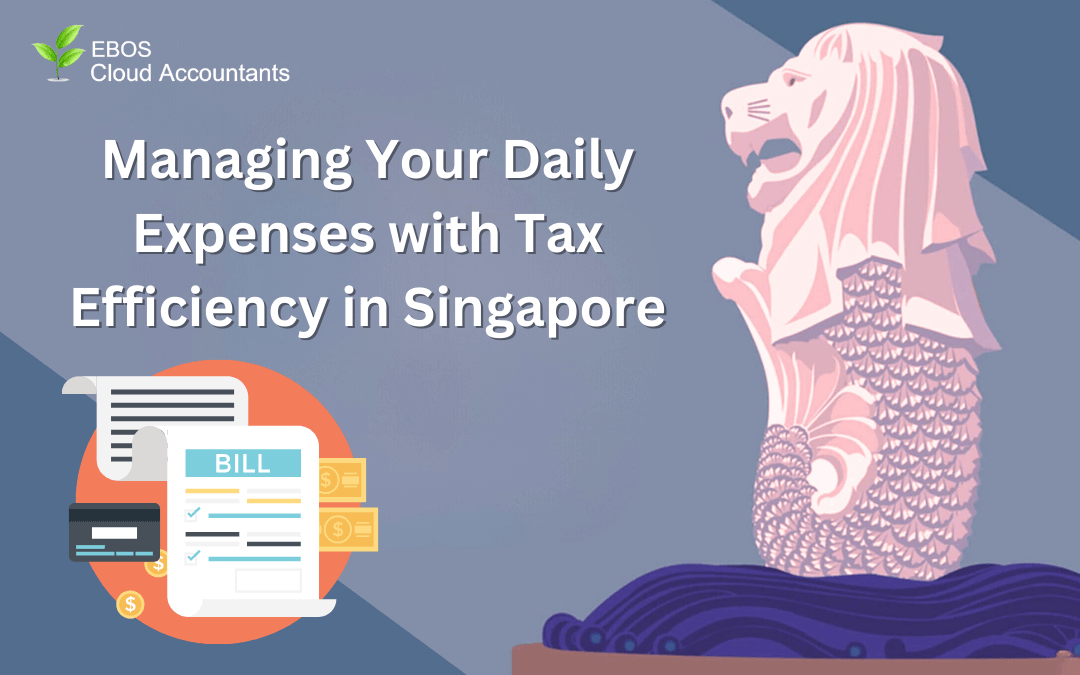Singapore is known for its favourable tax climate, yet balancing everyday spending with tax efficiency necessitates strategic preparation and knowledge of potential tax breaks. Whether you’re a resident or a company owner, optimising your daily expenditure can help you lower your total tax burden. Here are some basic tips for managing your everyday costs in Singapore while being tax-efficient.
1. Utilize Personal Income Tax Reliefs and Rebates
Singapore has many personal income tax breaks and refunds that can drastically reduce your taxable income. This includes:
- Parenthood Tax Rebate: Claiming the Parenthood Tax Rebate can assist parents offset taxes based on their number of children.
- Course Fees Relief: If you’re investing in your education or skill development, you can deduct course expenses from your taxable income.
- CPF Contributions: Contributions to Singapore’s mandated savings system, the Central Provident Fund (CPF), are tax deductible, reducing your taxable income.
Understanding and utilising these reliefs can significantly reduce your tax obligation.
2. Track and Categorize Expenses
Keeping thorough records of your everyday spending is essential for tax purposes. This involves keeping receipts and categorising spending correctly. Certain expenses, such as medical bills, can be deducted if they surpass a certain amount. By diligently recording these charges, you may avoid missing out on potential deductions.
3. Maximize the Use of Cashless Payments
Singapore’s government promotes the usage of digital payments with different incentives and refunds. Cashless transactions not only give a precise record of your costs, making it easier to manage and claim deductions, but they also sometimes include promotional refunds or rewards, which can lower total spending.
4. Leverage the Goods and Services Tax (GST) Voucher Scheme
The GST Voucher Scheme aims to assist low-income Singaporeans in offsetting some of their GST expenditures. Depending on your income and property ownership, you may be eligible for cash payments, MediSave top-ups, or utility rebates. Staying updated about such initiatives might bring financial assistance while also improving your overall tax efficiency.
5. Consider Investment-Linked Insurance Plans (ILPs)
Investment-linked insurance policies in Singapore provide both investment and insurance benefits. Premiums paid for such plans can be deducted from your taxable income, particularly if the policy covers critical sickness or life insurance.
6. Optimize Business Expenses
For company owners, handling everyday spending in a tax-efficient manner requires careful planning and categorisation. Travel, office supplies, and professional services are common business expenditures that can be subtracted. Maintaining correct records and receipts is critical for substantiating these costs when filing taxes.
7. Stay Informed About Tax Law Changes
Singapore’s tax rules and regulations are subject to change, which might affect the effectiveness of different deductions and reliefs. Keeping up with these developments guarantees that you always use the most recent and effective tax methods.
Conclusion
Managing everyday spending with tax efficiency in Singapore requires rigorous record-keeping, smart use of available reliefs, and a thorough grasp of the tax system. Whether you want to cut personal income taxes or optimise corporate costs, these tactics can help you lower your tax burden and improve your financial situation.
Check out our website at https://ebos-sg.com/ to explore more articles and discover how our Cloud Accountant Services can support you on your business.







